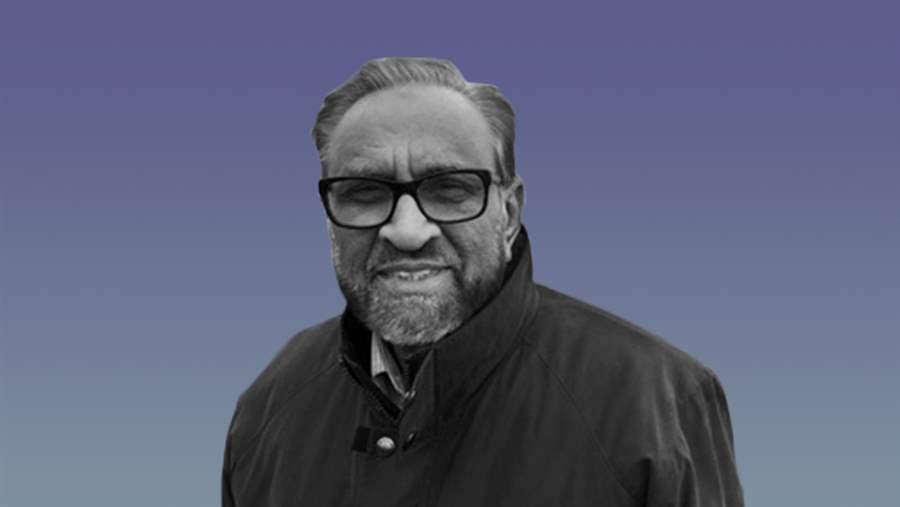Why Faith Leaders Are Talking About Dying: A Q&A With Y. Khalid Siddiq
Discussing end-of-life issues can help families make care decisions that their incapacitated loved ones would want
Last in a series of four
Y. Khalid Siddiq is a physician who moved to the United States from Pakistan 40 years ago. He has been an active member of Al-Farooq Masjid, the largest mosque in Atlanta, for more than 35 years, serving as its director and now overseeing outreach programs and education.
In the United States, mosques offer resources to help Muslims preserve their traditions while also navigating the complex medical and legal systems. Siddiq explains that Muslims must plan carefully for the end of life, specifically when being admitted to the hospital, because American health care workers often are not educated on the dietary restrictions, modesty in dress, prayer five times a day, and other religious practices of their observant patients. As a result, Muslims must, for example, carefully choose what they eat in the hospital or ask family members to bring them food.
Last year, Al-Farooq Masjid hosted its first Islamic will seminar to educate its community about how to create the documents while also following the practices outlined in the Quran. In addition to addressing matters of inheritance, the seminar covered how to name a health care agent and request a Muslim burial.
Q. Do you feel people are aware of the need for an Islamic will?
A. They are all aware of it. It’s part of the Quranic text and Quranic teachings, so everybody’s aware of it, except that they don’t know how to implement it. So we help them not only understand the concept of inheritance, but also understand the documents needed to implement it.
Q. In your role as a physician, do you see Muslim patients who have health care proxies?
A. They usually do not have health care proxies. It’s automatically presumed in our culture and our tradition that you will seek the treatment as it’s needed. And the prophet’s tradition is that you will seek the best treatment that is available to you. Denying yourself treatment is equal to suicide, self-destruction, nihilism, and that is not permitted in Islam. There can be an exception, however, when a team of physicians has agreed that death is inevitable or when the side effects of treatment will outweigh the benefits. At that point, it is permissible to withdraw or refuse care, and it is in that situation where a proxy can be important if the person cannot speak for themselves.
And at the same time, when the person is not able to make decisions, the family structure in our tradition is such that the wife and the eldest children—man or woman, boy or girl, son or daughter—all of them collectively make the decisions, and they come to a mutual agreement. This decision is not vested in one person.
We do encourage our community members to [complete a health care proxy form] because they may be in a situation where the family is not available. A lot of people are immigrants here, so the broader family structure is not available in the United States for many people.
Q. Have you encountered any resistance or people not wanting to do this within the community?
A. It’s more complacency than actual resistance. You know, we’re all creatures of habit. We all think we are invincible. We all think we are not going to need anything like this ever. It’s more that than a willing objection to it.
Q. Do the mosques you’re familiar with typically offer this kind of Islamic will seminar or this kind of education?
A. Mosques are places of worship for a Muslim. In America, they also play the role of educating Muslims about Islamic teaching and practices, so they’re both a place of learning and a place of devotion and worship.
And that role of the mosque, of teaching and learning, is important in this country because there are no other sources of education for an average person. So we recommend that all mosques should hold programs which emphasize the basic Islamic teachings, and teachings as far as their will or their death are concerned, [along with] burials.


How Faith Communities Facilitate Conversations Around End-of-Life Concerns
Interviews show the benefits of training and engagement on advance care planning


Why Faith Leaders Are Talking About Dying: A Q&A With Gwendolyn Phillips Coates
How she’s educating African-American communities about end-of-life planning.
Learn More

Why Faith Leaders Are Talking About Dying: A Q&A With Pam Pilote
How she’s helping church congregants advocate for themselves.
Learn More

Why Faith Leaders Are Talking About Dying: A Q&A with Wendy Fenn
How her experience as a hospice chaplain helps educate others.
Learn More






